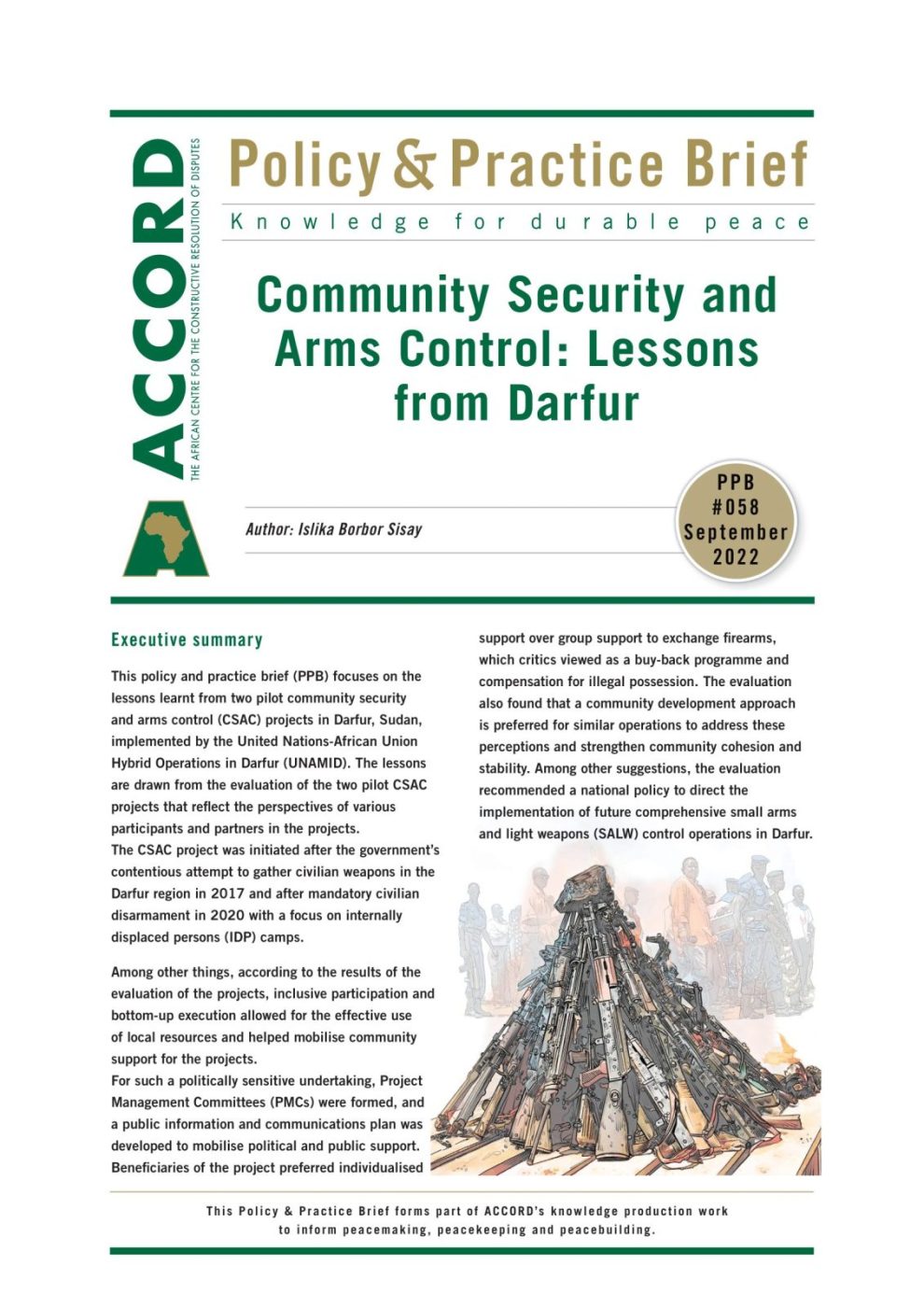
This brief discusses the lessons learned from two pilot community security and arms control (CSAC) projects in Darfur, Sudan, implemented by the United Nations-African Union Hybrid Operations in Darfur (UNAMID). The projects were initiated following attempts to gather civilian weapons in Darfur in 2017 and mandatory civilian disarmament in 2020, particularly focusing on internally displaced persons (IDP) camps. Key fin dings from the evaluation include the effectiveness of inclusive participation and bottom-up execution, which allowed for efficient use of local resources and community support. Project Management Committees (PMCs) were formed for this politically sensitive task, and a public information plan was developed to gain political and public support. The beneficiaries preferred individual support over group support for firearm exchange, which was criticized as a buy-back program and compensation for illegal possession. A community development approach was suggested to address these perceptions and enhance community cohesion and stability. The evaluation also recommended a national policy for future comprehensive small arms and light weapons (SALW) control operations in Darfur.
This brief was originally published by Accord.